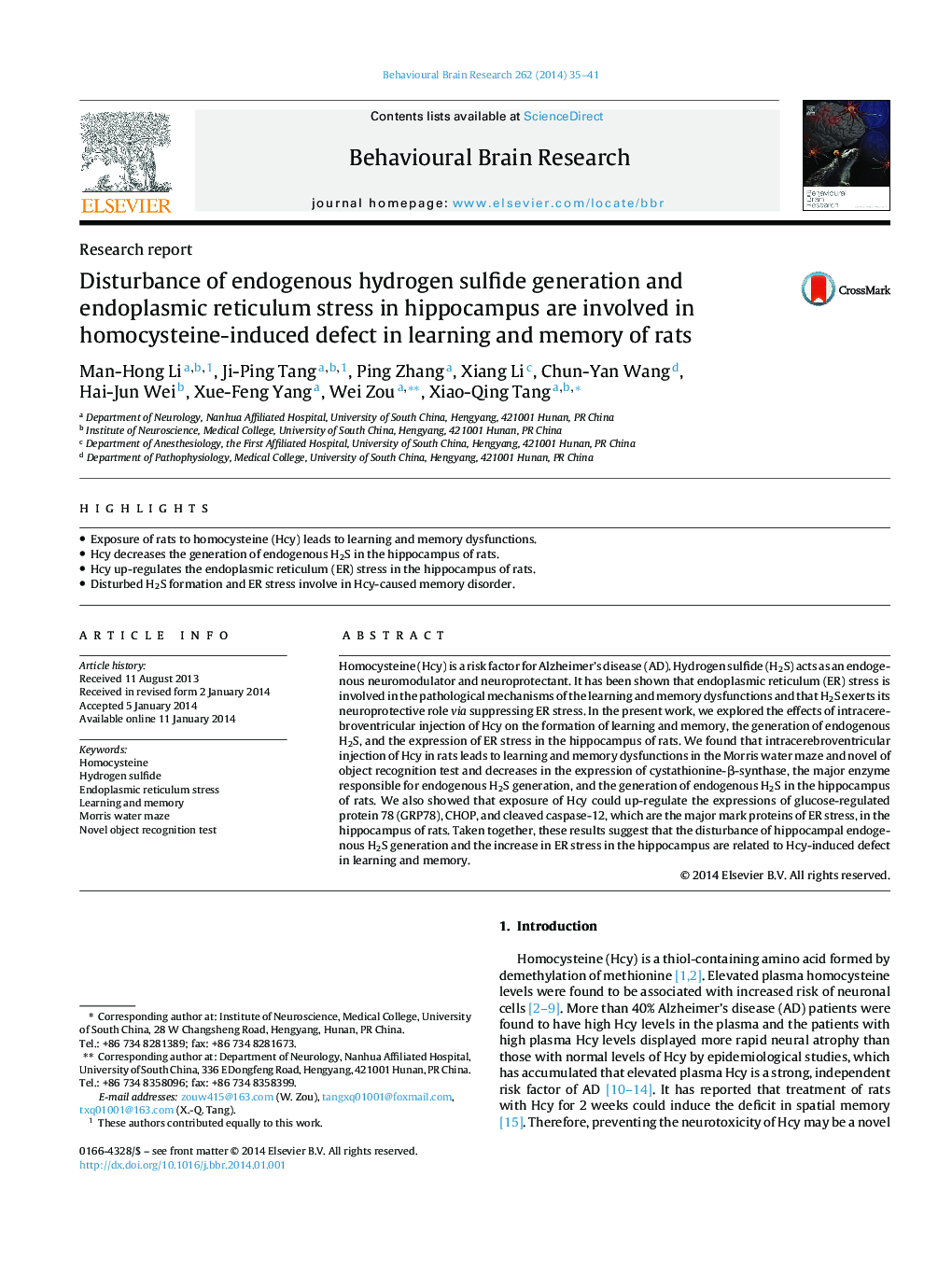| Article ID | Journal | Published Year | Pages | File Type |
|---|---|---|---|---|
| 4312549 | Behavioural Brain Research | 2014 | 7 Pages |
•Exposure of rats to homocysteine (Hcy) leads to learning and memory dysfunctions.•Hcy decreases the generation of endogenous H2S in the hippocampus of rats.•Hcy up-regulates the endoplasmic reticulum (ER) stress in the hippocampus of rats.•Disturbed H2S formation and ER stress involve in Hcy-caused memory disorder.
Homocysteine (Hcy) is a risk factor for Alzheimer's disease (AD). Hydrogen sulfide (H2S) acts as an endogenous neuromodulator and neuroprotectant. It has been shown that endoplasmic reticulum (ER) stress is involved in the pathological mechanisms of the learning and memory dysfunctions and that H2S exerts its neuroprotective role via suppressing ER stress. In the present work, we explored the effects of intracerebroventricular injection of Hcy on the formation of learning and memory, the generation of endogenous H2S, and the expression of ER stress in the hippocampus of rats. We found that intracerebroventricular injection of Hcy in rats leads to learning and memory dysfunctions in the Morris water maze and novel of object recognition test and decreases in the expression of cystathionine-β-synthase, the major enzyme responsible for endogenous H2S generation, and the generation of endogenous H2S in the hippocampus of rats. We also showed that exposure of Hcy could up-regulate the expressions of glucose-regulated protein 78 (GRP78), CHOP, and cleaved caspase-12, which are the major mark proteins of ER stress, in the hippocampus of rats. Taken together, these results suggest that the disturbance of hippocampal endogenous H2S generation and the increase in ER stress in the hippocampus are related to Hcy-induced defect in learning and memory.
